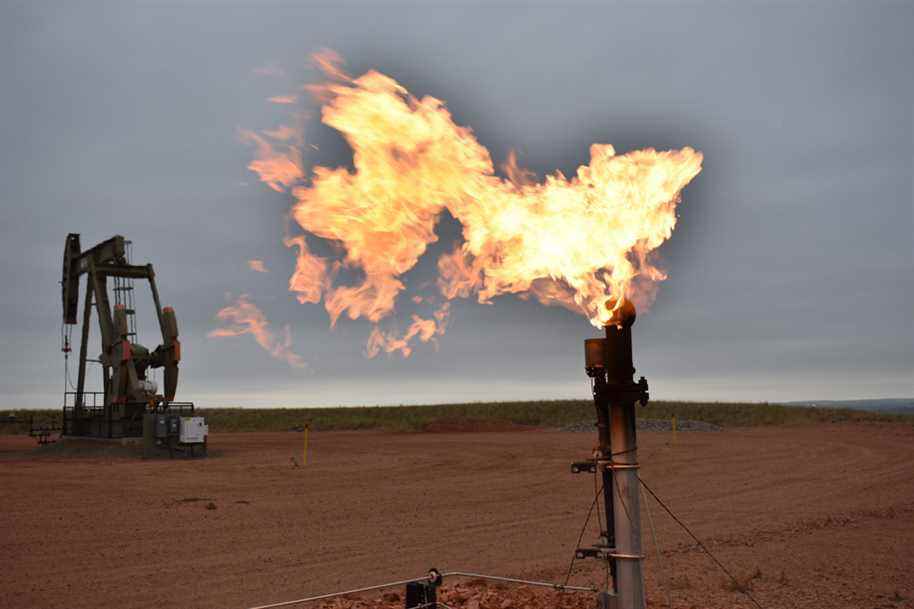(New York) Oil prices regained momentum on Thursday, with the barrel of Brent rising back above the 110 dollar mark, after reports that the European Union was preparing an embargo on Russian crude exports.
Posted at 4:03 p.m.
A barrel of Brent North Sea oil for June delivery gained 2.68% to $111.70.
A barrel of US West Texas Intermediate (WTI) for May delivery rose 2.58% to $106.95.
According to New York Times Thursday, which did not give details, the EU “is working out a plan to embargo Russian oil and that obviously moved the market” in the middle of the session, said Matt Smith of Kpler .
For Andy Lipow, of Lipow Oil Associates, “the market completely reversed the trend when the New York Times indicated that the European Union was considering adopting a gradual ban on Russian oil purchases”.
“This means that European countries are going to look for an alternative offer, which is difficult to find because OPEC “refused to use its additional production capacities to supplement Russian oil”, underlined the analyst to explain the sudden rise in prices, which were down in the morning.
He expected that the majority of EU countries could follow this embargo, while for some members of the Union, it is difficult at this stage to do without Russian hydrocarbons.
Matt Smith, chief oil analyst at Kpler, also pointed out that “paradoxically, Russia had exported more crude oil than last month”.
“Some countries have stopped importing but others have bought more,” he said, citing Spain and Turkey in particular.
In the early morning, prices were down slightly following the publication of US stocks the day before, the level of which was higher than expected.
Commercial crude oil reserves in the United States jumped 9.4 million barrels in the week ended April 8, according to figures released by the US Energy Information Administration (EIA) on Wednesday. Crude stocks, however, remain 13% below the five-year average.
The market was also less active than usual, due to the long weekend in Europe, America and most of Asia, underlined Ricardo Evangelista, analyst at ActivTrades, while a tighter market traditionally accentuates price volatility.
In addition, the International Energy Agency (IEA) on Wednesday revised world demand for oil down slightly due to confinements in China.
“The IEA cites lockdowns in China and weaker demand data in the US as reasons,” said Carsten Fritsch, an analyst at Commerzbank.
According to Carsten Fritsch, the IEA no longer sees the oil market as “undersupplied”, “because the drop in oil production in Russia is expected to be only half of what the IEA has been considering so far” .
